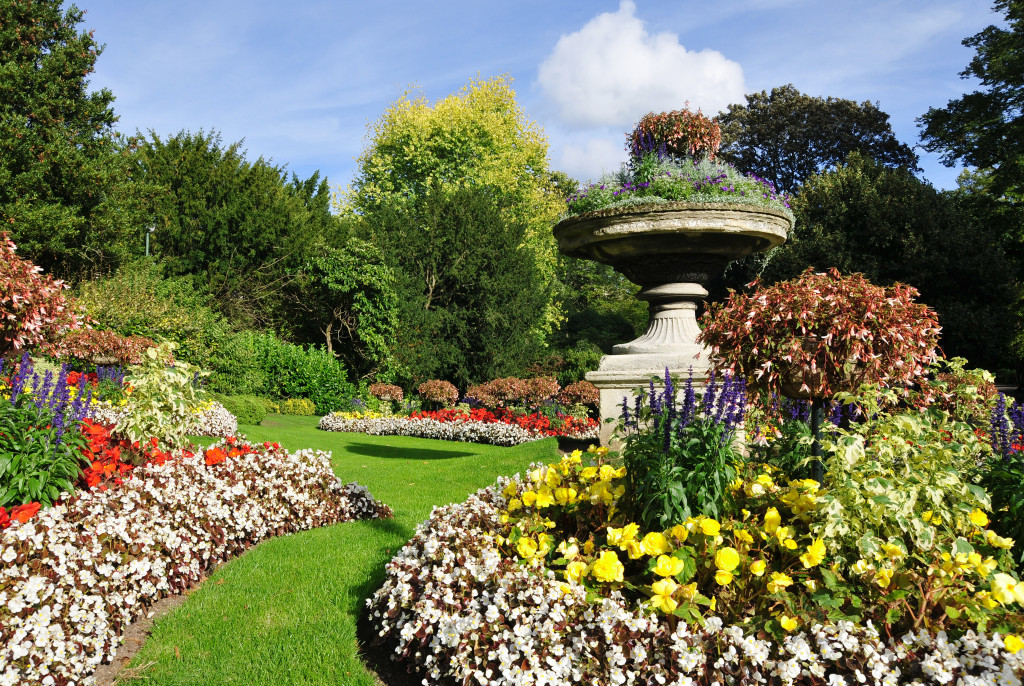Are you someone who enjoys spending time in your garden? If so, you probably already know how important it is to keep up with the maintenance. After all, a well-maintained garden will look nicer, but it will also be healthier and more productive.
However, many people are unaware of the best practices in garden maintenance. As a result, their gardens may not be as lovely or as bountiful as they could be. If you would like to learn more about taking better care of your garden, here are some tips for keeping your garden in great shape.
Start by evaluating your soil.
Your soil is one of the most critical aspects of garden maintenance, as healthy soil is essential for strong and healthy plants. If you have poor quality soil, it won’t be easy to grow anything in your garden.
You can test your soil by doing a simple at-home test or taking a sample to your local nursery or cooperative extension office. Once you know the quality of your soil, you can take steps to improve it if necessary.
A well-maintained garden will have loose, crumbly soil rich in organic matter. If your soil is too dense, it will not allow water and air to reach the roots of your plants. On the other hand, if your soil is too sandy, it will drain too quickly and not hold enough nutrients for your plants.
So, how can you achieve the perfect balance? Add organic matter to your soil, such as compost, manure, or leaf mold. You can improve drainage and increase nutrients available to your plants in doing so.

Choose the right plants for your garden.
Not all plants are created equal, and some will require more care than others. Do some research to determine which plants will best suit your particular climate and soil type.
It would help if you also considered your gardening goals when choosing plants. For example, if you want to attract pollinators to your garden, you will need to select plants that bloom throughout the year.
Once you have chosen the right plants, plant them in the correct location. Each plant has different light and water requirements, so be sure to place them in an area where they will receive the proper amount of both.
Properly water your plants.
One of the essential aspects of garden maintenance is watering your plants correctly. Over-watering can drown your plants and lead to root rot, while under-watering will cause your plants to wilt and eventually die.
You can ensure that you correctly water your plants by checking the soil before watering. If the soil is dry to the touch, it is time to water. Be sure to give your plants enough water so that the water penetrates the root system, but don’t allow the roots to sit in water.
Weed your garden regularly.
Weeds compete with your plants for water, nutrients, and sunlight, so it is crucial to remove them regularly. The best way to control weeds is to prevent them from growing in the first place by using mulch.
Mulch is a layer of material, such as wood chips, hay, or straw, that you can place over the soil. It helps to prevent weeds from germinating by blocking out the light.
In addition to using mulch, you should also pull up any weeds that do manage to grow in your garden. Be sure to get the entire weed, including the roots, so that it does not regrow.
Fertilize your plants.
Plants need nutrients to grow, and sometimes the soil doesn’t have enough of the proper nutrients. When this happens, you will need to fertilize your plants.
There are many types of fertilizer available, so be sure to choose one appropriate for the plants you are growing. You can also create one of your own by composting household and kitchen waste.
Compost is a great way to add nutrients to your soil, and it is much cheaper than buying fertilizer.
Clean the surrounding areas.
Many people forget that the area around their garden is just as important as the garden itself. It can be tricky to keep your garden looking neat if the surrounding area is a mess.
Be sure to clean up leaves, twigs, and other debris that attract pests. You should also seek a professional gutter cleaning service to ensure that the gutters around your home are free of debris.
Besides, taking the time to clean up the area around your garden can make a big difference in the overall appearance of your property.
Following these best practices will help you maintain a healthy and beautiful garden. From soil preparation, choosing flowers, proper watering, and fertilization, paying attention to the details will ensure that your garden flourishes. And, of course, don’t forget to enjoy the fruits of your labor by spending time in your garden!

